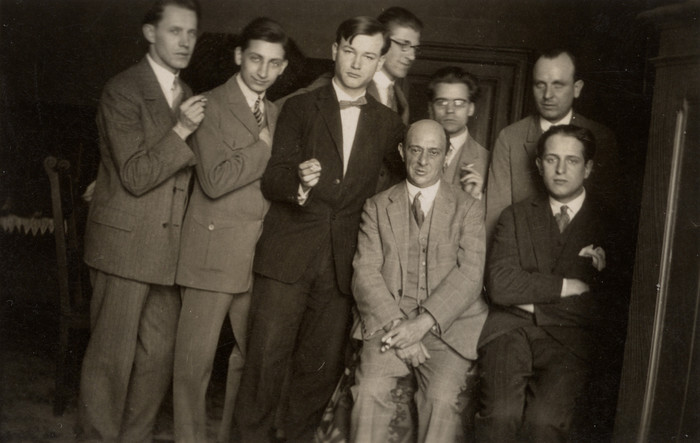Special Exhibition
28 September 2000 until 2 Februar 2001
The special exhibition at the Arnold Schönberg Center is dedicated to Schönberg’s work and teaching activities during his three stays in Berlin between 1901 and 1933. In 1901, Schönberg began his term as conductor of Berlin’s cabaret theater, “Überbrettl,” and taught theory at the Stern Conservatory from 1902 to 1903. He composed the most important work of his first Berlin stay with his symphonic poem “Pelleas und Melisande.” In the fall of 1911, Schönberg moved to Berlin again, and held lectures on the aesthetics of music at the Stern Conservatory. In the spring of 1912, a key work of 20th century music was created here, namely Schönberg’s “Pierrot lunaire.” With the outbreak of the First World War, the composer was forced to return to Vienna. In 1926, Schönberg’s reputation as a teacher resulted in his being offered a master class in composition at the Prussian Academy of Arts as successor to Ferruccio Busoni. His pupils Winfried Zillig, Josef Rufer and Roberto Gerhard accompanied him, and soon after, there followed international pupils such as Nikos Skalkottas, Erich Schmid and Marc Blitzstein. The III String Quartet, op. 30 (1927), the Variations for Orchestra, op. 31 (1928), as well as a large portion of the opera “Moses und Aron” were composed at this time. The last Berlin stay of the Jew Arnold Schönberg ended abruptly with his dismissal from the Academy in 1933. The special exhibition “Arnold Schönberg in Berlin” will display textual and music manuscripts, biographical documents, and memorabilia from the legacy of the composer, as well as from archives in Berlin and Switzerland. A cross-section of those paintings which Schönberg had created in Berlin, in addition to video and audio documentation, will complement the presentation of Arnold Schönberg’s compositional, theoretical, and pedagogical influence in Berlin.
We would like to thank the following institutions for the allocation of exhibits: Stiftung Archiv der Akademie der Künste Berlin, Historisches und Verwaltungsarchiv sowie Musikarchive; Musikabteilung der Zentralbibliothek Zürich; Hochschularchiv der Hochschule der Künste Berlin; Musikabteilung der Staatsbibliothek Berlin, Preußischer Kulturbesitz.

